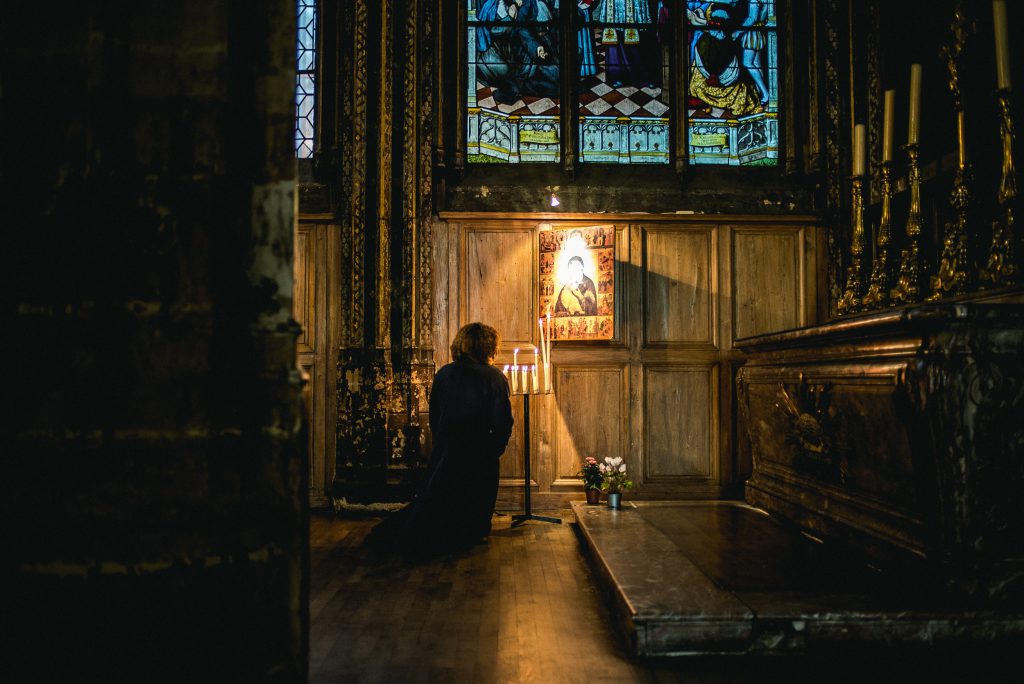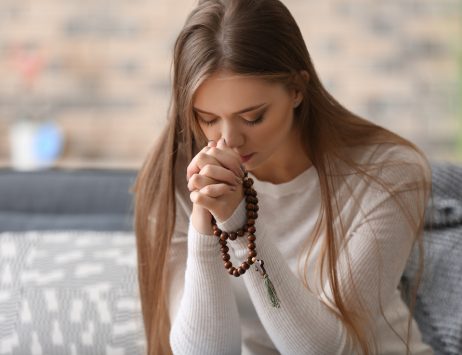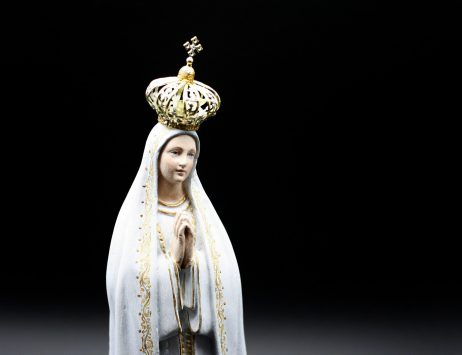By Jon Stotts
When Catholics today hear the word “liturgy,” we tend to immediately think about the Mass. And while the Eucharist is the source and summit of the Christian liturgical life, we know that from the earliest days Christians gathered together for liturgies apart from the Eucharist. They gathered to petition God for favors, to praise God together, to rites of passage and important events in the life of the community, and to lament their suffering at the hands of an oppressive and broken world. Christians gathered together to pray at home, at synagogue, at temple, and at church. Liturgy, the “work of the people,” occurs whenever we gather together for prayer in the name of Jesus.
The Psalms have always played a vital role in Christian liturgy. These 150 songs of praise and adoration, petition and lament written over Israel’s complicated history with God and the nations of the world were the heart of Jesus’s own prayer. And so they are the heart of our prayer.
Over time, the Church collected the variety of ways that Christians were coming together to pray the Psalms and created a universal, Catholic structure for praying the Psalms and other Scriptural readings. We call this way of praying the Scriptures the “Liturgy of the Hours.” You’ll also hear it referred to by “the Divine Office” or “praying the Breviary.”
This way of praying is indeed a liturgy. It is a structured and ritual form of prayer designed for a group of Christians to pray together. Even when we are praying the liturgy of the hours alone, we are participating in the Church’s prayer — and so we are not alone.
This liturgy is dedicated to “the hours.” It is a way of setting apart the periods of our day by pausing to turn to God together. In today’s version of the liturgy of the hours, we find times for morning prayer, midday prayer, evening prayer, nighttime prayer, and even prayer very late at night or early in the morning — or whenever you’d like to fit it in.
The liturgy of the hours is a way of sanctifying our day, of joining our time to the Church’s time. It is a way of being connected.
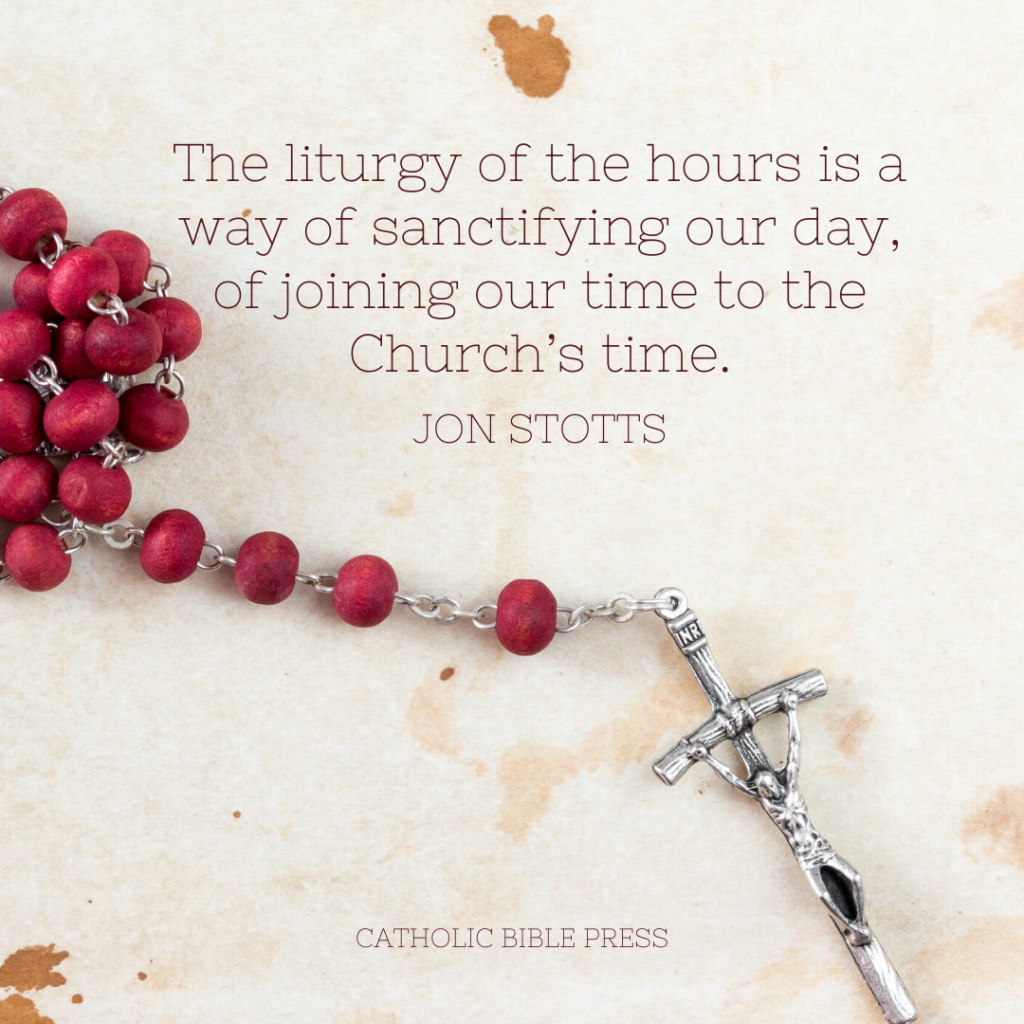
When I prayed the morning office today, even though I prayed it by myself, I know that my priests prayed the same psalms. I know that fellow parishioners who use this prayer prayed the same psalms.
My bishop, the college of bishops, and even Pope Francis — all who pray the liturgy of the hours are united in praying the same psalms, meditating on the same readings, offering the same intercessions.
And during this time of social distance, we need to feel connected more than ever. The liturgy of the hours gives us a way to connect to one another through these ancient prayers. And because antiphons and readings of the liturgy of the hours are connected the liturgical year, this prayer gives us a way to stay connected to the Mass even when we can’t be physically present.
Getting started with Praying Scripture
If you want to get started right away, I would encourage you simply to open your Bible to the Psalms and pick one to pray. It doesn’t really matter which one, but you might choose Psalm 139. It can be helpful to read through it once, just to get an idea of what’s being expressed, and then to go back and pray it. Get used to the cadence and repetition of the lines. Like you’re reading a poem to someone you love, or a carefully crafted letter that you’ve written to someone you care about. You might return to it for a few days in a row, to see how your heart responds to its words over time. Once you’ve gotten used to praying a single Psalm, praying a number of Psalms in a row won’t seem like such a big deal.
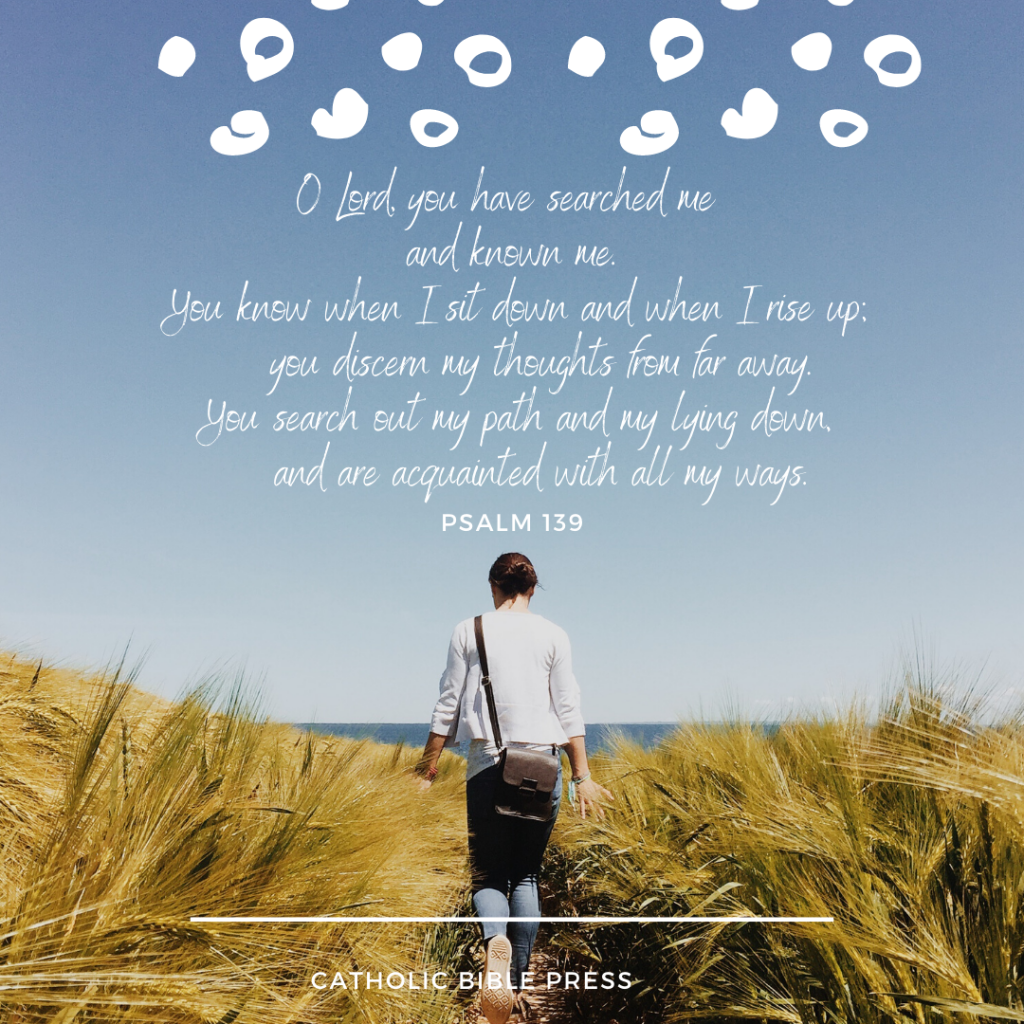
When you’re ready to try praying an entire office like morning or evening prayer, the easiest way is to use your web browser or phone to open a digital version. Though I prefer to use my hard copy of the Liturgy of the Hours, there’s something of a learning curve to understanding how all the parts fit together. By using a website like ibreviary.com or its affiliated mobile app, you can get straight to praying without learning how to navigate the pages.
In the beginning, it can seem like a very complicated form of prayer. But after just a little practice, we begin to feel its rhythm, its value. Even if we start by choosing a single time of day to pray — morning prayer, or compline, for instance — we can find ourselves looking forward to the opportunity to dedicate 10 or 15 minutes to joining in the Church’s prayer. In the words of Sacrosanctum concilium, Vatican II’s Divine Constitution on the Sacred Liturgy, the Liturgy of the Hours “is truly the voice of the Bride herself addressed to her Bridegroom. It is the very prayer which Christ himself together with his Body addresses to the Father.” Let the Psalms draw us all into unity as we sing the praises of God.
Jon Stotts is a professional lay ecclesial minister in Nashville doing Christian initiation, ongoing conversion, and parish enrichment at Christ the King Catholic Church. Jon has a Ph.D in Religion from Vanderbilt University and a M.A. in Theology from Saint Meinrad School of Theology. He’s married and has three kids. In his free time he writes, bakes bread, and dances with his family.
Now take a moment read Psalm 139
Psalm 139: The Inescapable God
1 O Lord, you have searched me and known me.
2 You know when I sit down and when I rise up;
you discern my thoughts from far away.
3 You search out my path and my lying down,
and are acquainted with all my ways.
4 Even before a word is on my tongue,
O Lord, you know it completely.
5 You hem me in, behind and before,
and lay your hand upon me.
6 Such knowledge is too wonderful for me;
it is so high that I cannot attain it.
7 Where can I go from your spirit?
Or where can I flee from your presence?
8 If I ascend to heaven, you are there;
if I make my bed in Sheol, you are there.
9 If I take the wings of the morning
and settle at the farthest limits of the sea,
10 even there your hand shall lead me,
and your right hand shall hold me fast.
11 If I say, “Surely the darkness shall cover me,
and the light around me become night,”
12 even the darkness is not dark to you;
the night is as bright as the day,
for darkness is as light to you.
13 For it was you who formed my inward parts;
you knit me together in my mother’s womb.
14 I praise you, for I am fearfully and wonderfully made.
Wonderful are your works;
that I know very well.
15 My frame was not hidden from you,
when I was being made in secret,
intricately woven in the depths of the earth.
16 Your eyes beheld my unformed substance.
In your book were written
all the days that were formed for me,
when none of them as yet existed.
17 How weighty to me are your thoughts, O God!
How vast is the sum of them!
18 I try to count them—they are more than the sand;
I come to the end[a]—I am still with you.
19 O that you would kill the wicked, O God,
and that the bloodthirsty would depart from me—
20 those who speak of you maliciously,
and lift themselves up against you for evil![b]
21 Do I not hate those who hate you, O Lord?
And do I not loathe those who rise up against you?
22 I hate them with perfect hatred;
I count them my enemies.
23 Search me, O God, and know my heart;
test me and know my thoughts.
24 See if there is any wicked[c] way in me,
and lead me in the way everlasting.[d]
